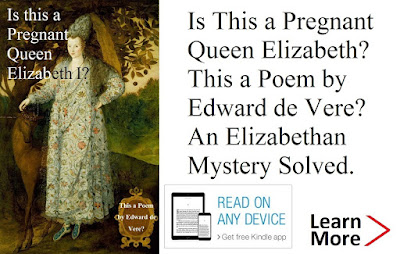 |
| It's that time again!!! Welcome to Tudor Trivia Tuesday!!! |
1) Funded by Bristol, U.K., merchants, the explorer John Cabot thought that he had reached the coast of Asia in 1497. Instead, he had sighted the east coast of present day Canada.
2) Lorenzo Pasqualigo wrote to his brothers, on October 11,
1497, “The Venetian our countryman [John Cabot, Giovanni Caboto] who went with
a ship in quest of new islands is returned, and says that 700 leagues hence he
discovered land, the territory of the Grand Cham. He coasted for 300 leagues
and landed, saw no human beings, but he has brought hither to the king certain
snares, which had been set to catch game, and a needle for making nets; he also
found some felled trees, wherefore he supposed there were inhabitants, and
returned to his ship in alarm." [
Cunningham’s Growth of English Industry]
3) Sir Nicholas Throckmorton served in Queen Mary's army while
he regularly visited Princess Elizabeth at Hatfield. When Queen Mary died, he
was admitted to see her corpse, and, as Elizabeth had requested, took from her
finger the wedding-ring which had been given to her by Philip, and delivered it
to Elizabeth. [Chambers’ Book of Days]
4) 22 Hen. VIII, c 12 (1530-1), a statute against vagrancy,
under Henry VIII, declared that "all able-bodied persons found begging are to be
taken to the nearest market town, or other place most convenient, and there to
be tied to the end of a cart naked and be beaten with whips throughout the town
till their bodies are bloody, after which they are to return to the place where
they were born, or where they last dwelt by the space of three years, being
furnished with a pass for the purpose certifying their punishment and limiting
the time within which they have to return, and every time they make default in
the order they are to be whipped." [Robton-Turner’s Vagrants and Vagrancy]
5) According to Wriothesley, “Fridaye the 24 of November[,
during the first year of the reign of Mary I,] one Sir Tho. Sothwood, priest,
alias parson Chekin, parson of St. Nicholas olde abbaye in Old Fishe Street,
rode aboute the Cittie in a carte with a ray hood for sellinge his wife, which
he said he had maried.” The implication would seem to be that he was trying to
sell her, priests no longer being allowed to be married upon the switch to a Catholic
monarch. [Wriothesley’s Chronicle of England During the Reigns of the Tudors]
6) According to Queen Mary I’s will, at the time of her
death, she left ₤500 for the relief of poor scholars of the Universities of
Oxford and Cambridge.
7)
8) In the May, 1489, an insurrection occurred in Yorkshire following the “massacre of the Earl of Northumberland”. The Earl of Oxford
assembled a force at Cambridge and succeeded in bringing the matter under
control largely by marching on the city of York. [Cooper’s Annals of Cambridge]
9) In the accounts of the town of Cambridge, for 1489, is
found the following entry:
In wine given to the Earl of Oxford, 2s. 8d. ; and in sweet
wine and claret given to the same Earl in the morning, 20d.; and in one box
with two pounds of comfits given to the same Earl, 2s. Id.; and in wine given
to the said Earl when he returned from York, 2s. 8d.; and in wine given the
minstrels of the said Earl, 8d.
10) It is noted in Dr Langbaine's Collections, under January
23, 1617, that John Shurle had a patent from Arthur Lake, Bishop of Bath and
Wells, and Vice-Chancellor of Oxford, 'for the office of ale-taster [to the
University] and the making and assizing of bottles [bundles] of hay. The office
of aletasting requires that he go to every ale-brewer that day they brew,
according to their courses, and taste their ale ; for which his ancient fee is one
gallon of strong ale and two gallons of small wort, worth a penny.' [Chambers’ Book
of Days]
Also at Virtual Grub Street:
- Simnel Cake: Lenten Treat of the Ages. March 7, 2021. “Samuel Pegge sees confirmation that saffron was used in the crusts of simnel cakes in Shakespeare's Winter's Tale…”
- Excerpts from Letters about the Origin of the 1563 Plague. January 17, 2021. “on the progress of the conflict between Queen Elizabeth I’s forces and those of the French Regent, the Queen Mother, Catherine de Medici.”
- A Most Curious Account of the Funeral of Queen Elizabeth I: April 28, 1603. April 28, 2019. “Once it was clear that James I would face no serious challenges, Cecil and the others could begin to give attention to the matter of the Queen’s funeral.”
- The Battle Over Shakespeare's Early and Late Plays. September 24, 2018. “The answers to the post-Oxford dilemma, of course, are three.”
- Check out the English Renaissance Article Index for many more articles and reviews about this fascinating time and about the Shakespeare Authorship Question.
- Check out the English Renaissance Letter Index for many letters from this fascinating time, some related to the Shakespeare Authorship Question.



No comments:
Post a Comment